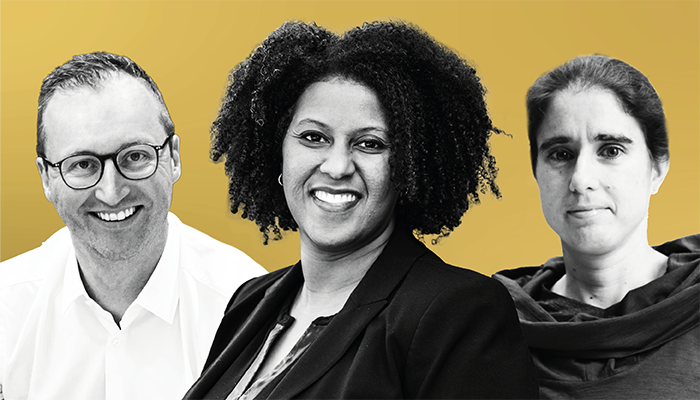
Emma Schymanski: Honestly, for me one of the biggest concerns and thus challenges facing the field right now (as for many) is the global instability and the general uncertainty everyone is facing about their future – and also the future of our world. It is making research, science and collaboration a lot more difficult. Instead of an atmosphere of openness and trust, essential to exchange information that is the basis for our research, there is a lack of resources, budget cuts, uncertainty, many external pressures – an increasing “me first” attitude. Environmental research and topics are usually among the first to suffer in tougher times, so it saddens me to see this developing trend in many ways, but I hope we will be strong enough to ride out the storm and still be able to do our best to make positive contributions to the exchange of chemical information and ideas to support other environmental and health/toxicology researchers in helping to ensure a healthier future for us all.
Gert Desmet: I fear this is the rapidly declining training level of the average analyst starting today in industry, augmented by the fact that the samples they are confronted with are ever more complex and need to meet ever stricter regulations. Hopefully, instrument manufacturers see this as an opportunity to stuff their instruments with tons of artificial intelligence to make them much smarter than they are now.
Michael Gonsior: Being able to create enough funds to support students and to buy expensive analytical instruments.
Renã Robinson: Accessibility and inclusion. We have to ensure analytical science is drawing from a diverse global talent pool and we are expanding resources to conduct high quality research across the globe. The problems that analytical science solves are many and as a field we must ensure we have amazing talent and spread the resources to be successful.
Konstantin Shoykhet: There are certain specific challenges in the analytical chemistry or liquid chromatography fields, such as the processing of even smaller sample amounts, processing of very complex (e.g. biological) samples, increasing analytical requirements in environmental analysis, increasing data volume and complexity – but I believe the greater challenges are within the field of education.
I agree with Peter Schoenmakers' opinion, published in the Analytical Scientist in the "Ten Year Views: With Peter Schoenmakers," that: "Education – even in basic chromatography – is a big issue. We are starting to see more mistakes in analytical science because of a lack of education. We need people to understand what they’re doing... ...This issue has less impact on routine analysis, where we have control procedures, but it is having an important impact on non-routine work, such as problem solving. Moreover, as analytical science is an engine for innovation, we should be able to produce correct data from complex and unknown samples." This may become a significant obstacle within research, in the future, even despite increased assistance offered by automation, IT-infrastructure and AI.
Koen Sandra: I believe there are several big challenges. The most obvious one is how to inspire and educate the next generation of analytical scientists. Our field is clearly struggling here. In addition, we are amid an overwhelming tech revolution (novel instrumentation, big data, AI) and our precious analytical brains have to stay on top of things. We furthermore must embrace the different aspects of sustainability while maintaining the highest analytical standards.
Gunda Köllensperger: We need to make sure that universities and research institutions continue engaging in methodological research, both at the level of instrumental- and procedural development. Currently, many institutions install analytical service units, placing the instrumental resources in core facilities. This might pose challenges for future analytical science at several levels. First, cutting edge methodological research is challenging in a service-oriented environment and second, students are encouraged to delegate their measurements and miss opportunities for hands-on-experience. While I think that the analytical chemistry education vastly improved on the aspect of data analysis, we need to reinforce education on instrumental analysis and wet chemistry in measurement. If we want to push methodologies like multimodal approaches, we will need scientists with technical skills. We need to train the next generation of analytical chemists on how to step-wise implement and improve measurement methods, and we need to teach experimental design of method validation, all aspects foundational to analytical innovation.




